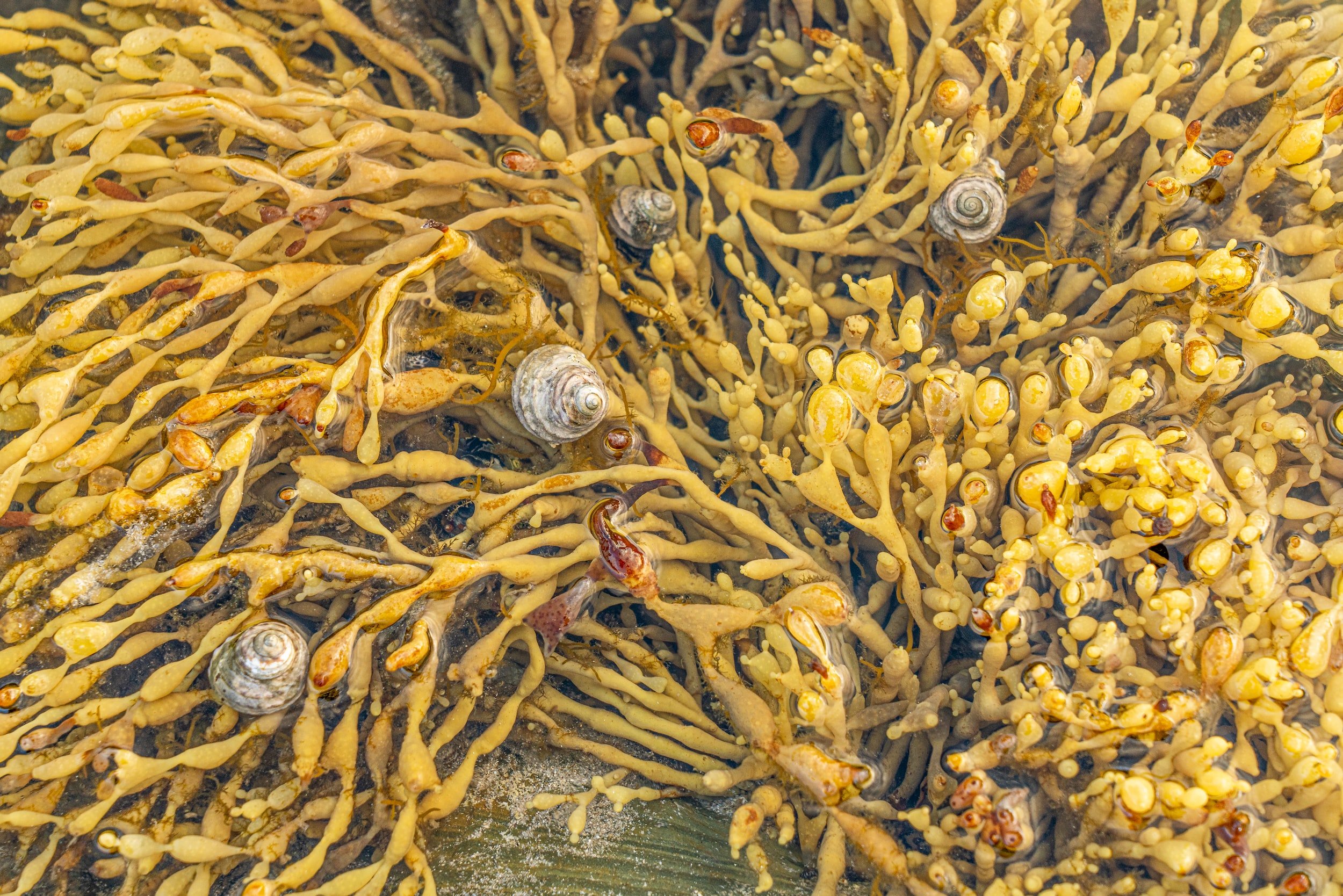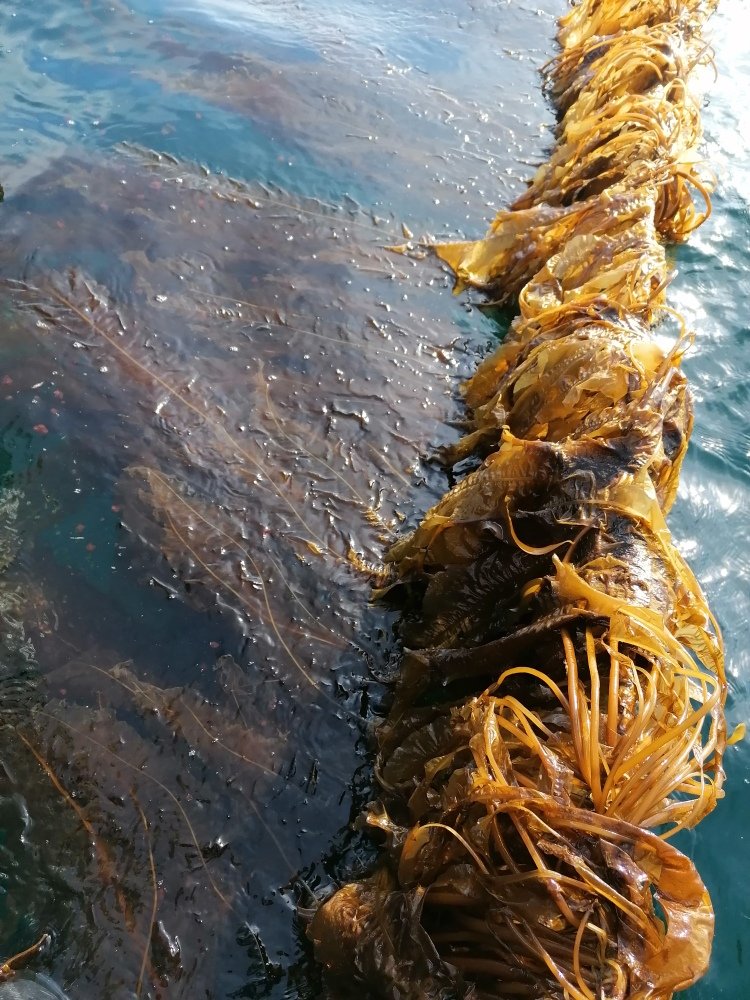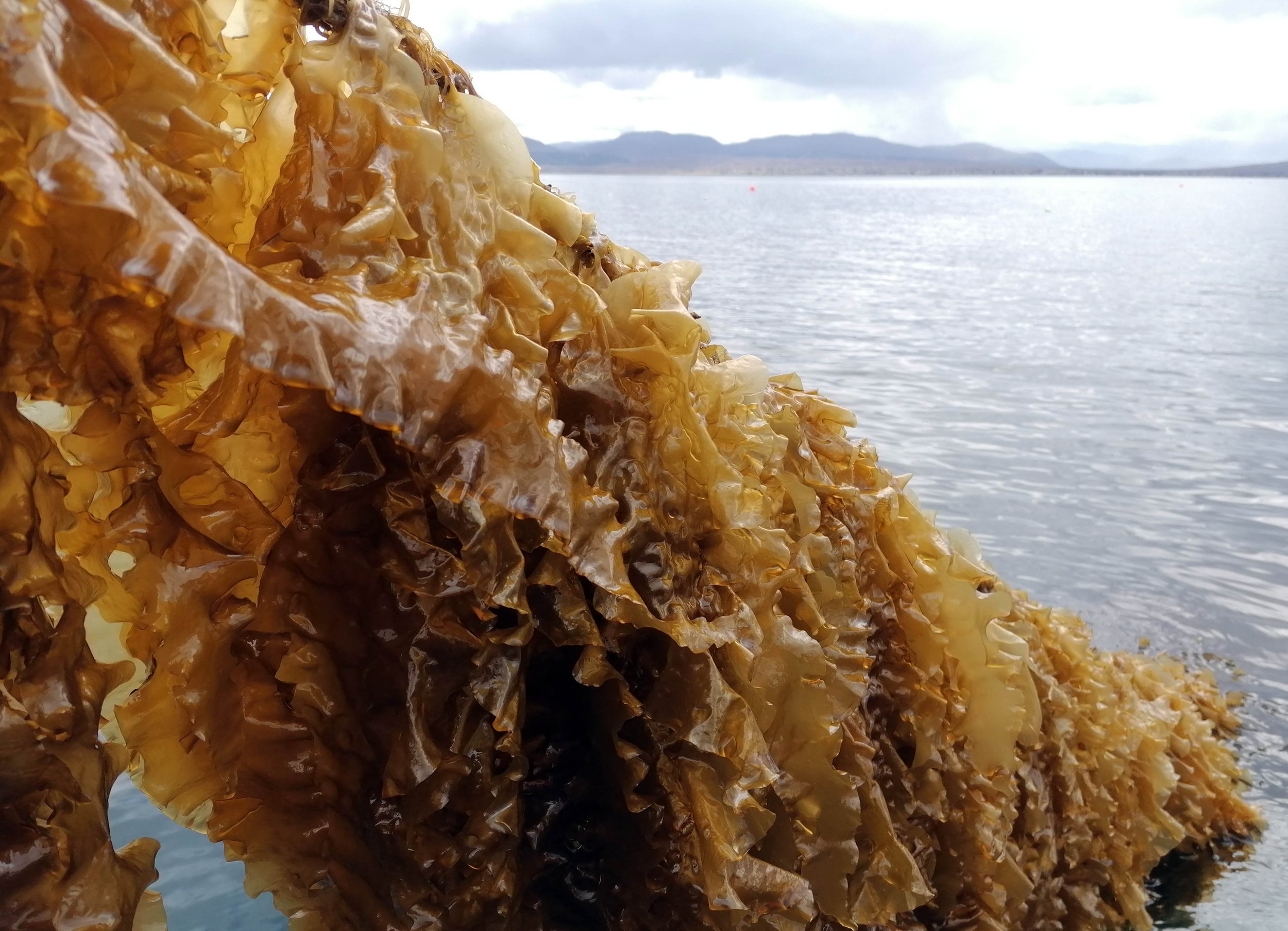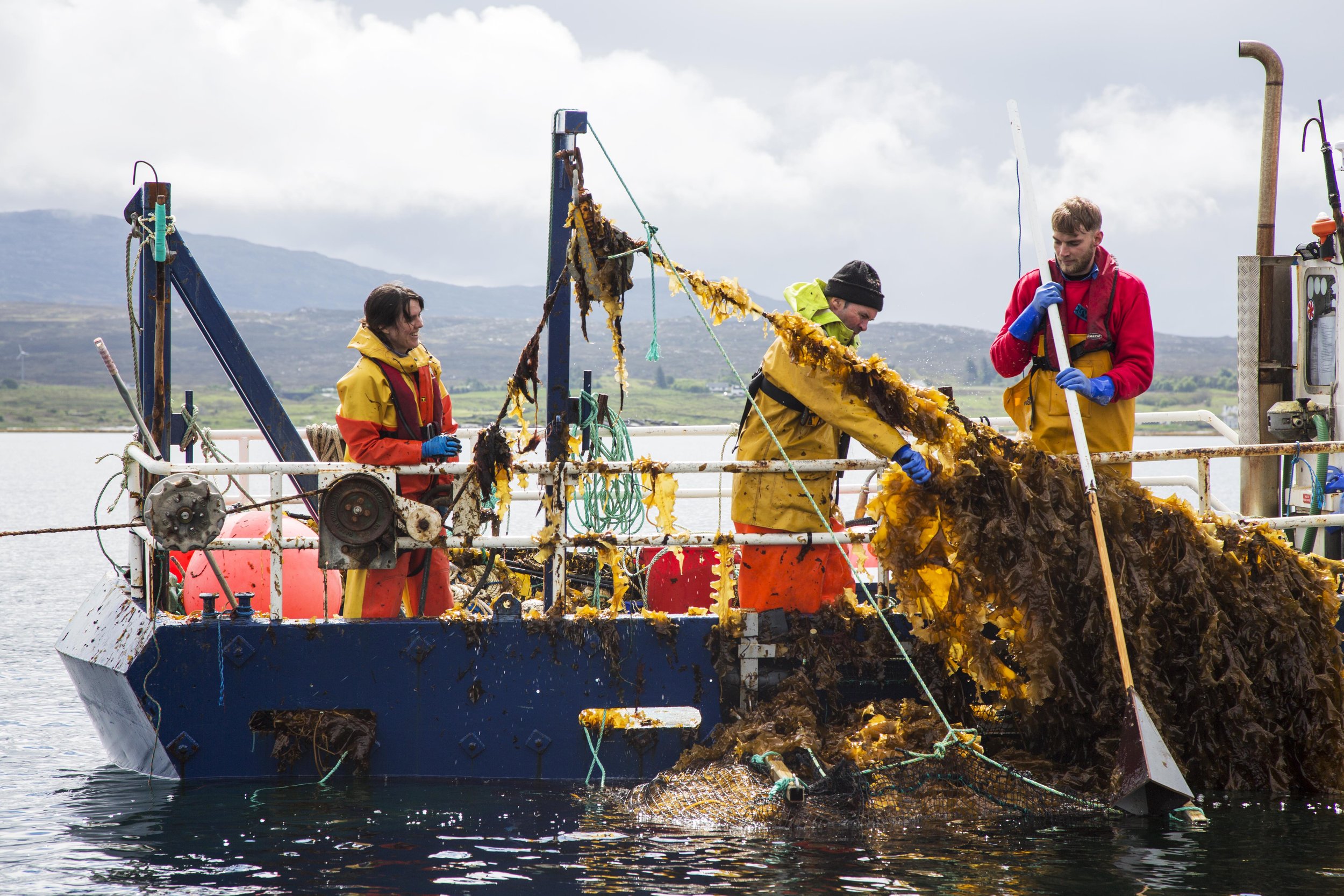
KelpCrofters - Redefining the way we use our seas and land
KelpCrofters Ltd. was setup in early 2020 on the rugged West Coast of Scotland by Martin Welch, Kyla Orr and Alex Glasgow. All three co-founders are local to the Skye and Lochalsh area, and have lived and worked on the land and seas of Scotland for many decades. Our professional backgrounds span across fisheries, forestry and marine science, and this has given us first-hand experience of dwindling natural resources and major sustainability challenges such as overfishing, biodiversity loss, habitat destruction and resource mismanagement. We share a passion to explore alternative sustainable livelihoods that add to rather than take away from nature. We see kelp farming as a solution because it can regenerate habitats at sea whilst providing a renewable supply of seaweed for a variety of environmentally-friendly materials, from bio-packaging and bio-fertilisers, to plant-based foods and chemical-free cosmetics. Through in-depth research, KelpCrofters have learnt that the benefits of seaweed farming are further amplified if this nutrient-rich resource is transferred to the land. Our major focus is on the creation of kelp products that can naturally boost the health and productivity of soil, crops and gardens while revitalising the marine environment and enhancing carbon capture and drawdown.
“We are passionate about minimising our environmental impact, from production through to delivery, and we are striving to use recyclable packaging, low-energy processing technology and upcycled waste materials wherever possible.”
- Dr. Kyla Orr, Co-founder
To reduce the impacts of climate change, new emissions of greenhouse gasses must be as low as possible. At KelpCrofters one of our main goals is to achieve ‘Net zero emissions’ and produce carbon neutral products. ‘Net Zero’ refers to achieving an overall balance between greenhouse gas emissions produced and greenhouse gas emissions taken out of the atmosphere. Carbon dioxide is one of the main contributions to climate change, and kelp absorbs dissolved carbon dioxide as it grows. This is offset against the carbon dioxide that is emitted during our cultivation, harvesting and processing activities.
At KelpCrofters we are moving towards wet-processing and ensiling our seaweed (less or no drying and freezing) so we can be carbon neutral or negative. We also have solar panels which entirely offset electricity used in the hatchery stage, and are investing in low-energy drying methods. If the seaweed is turned into plant biostimulants and bio-fertilisers this will boosts plant growth, which leads to additional absorption of CO2 by plants, and draws carbon down into the soil through the process of root formation. Whilst this will not reverse climate change, it will help gardeners and farmers to grow more sustainably, whilst simultaneously reducing greenhouse gas emissions. This enhances the climate benefits of seaweed products, and removes some reliance on chemical fertilisers in agriculture, which are one of the major sources of greenhouse gas emissions.
Growing for net-zero
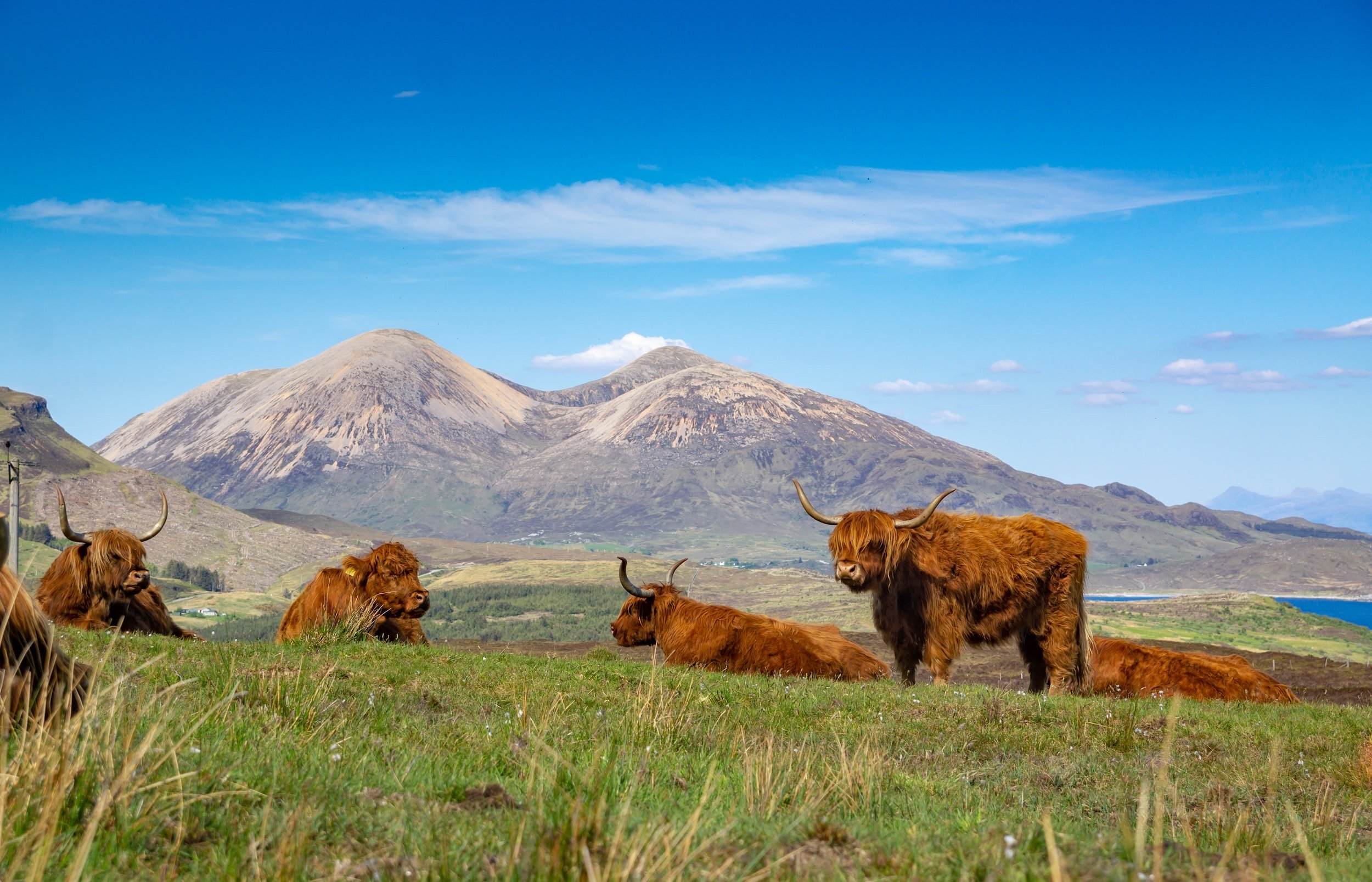
The Crofting Ethos
Crofting is a form of land-tenure and small-scale food production that has taken place in Scotland's Highlands and Islands for hundreds of years, but is also a social structure that was traditionally defined by its common working communities or ‘townships’. Crofters are often resourceful, innovative and hardy, doing what they can with what they have, or enlisting the help of a friendly neighbour. At KelpCrofters we believe that seaweed farming should follow this ethos, using locally available resources and sharing knowledge wherever possible. KelpCrofters also believe that in the long-term, a network of small to medium scale kelp farms dotted around the coast of Scotland will have a lower environmental impact and provide greater employment opportunities for coastal communities than a few very large ‘industrial’ farms. Lets help this new blue-green economy develop ‘the crofting way’.
“Why farm seaweed when you can harvest it from the wild?”
At KelpCrofters we farm large brown kelp species (the ‘Laminariales’). In nature, these kelps naturally occur below the low tide line, and are different to intertidal seaweed species such as rockweed (Ascophyllum nodosum) that you see growing abundantly along the coastline. You would need to go snorkelling or diving to properly see a kelp forest, and witness the abundant life it supports. In 2018 the mechanical harvesting of kelp species from the wild was banned in Scotland to protect kelp habitats, while sustainable wild harvesting of Ascophyllum and other intertidal seaweeds is still permitted. The practice of kelp farming has steadily increased around Europe over the last 10 years, because it provides a renewable and sustainable source of kelp that does not impact wild kelp ecosystems. The seaweed industry in the UK comprises both the wild harvest of Ascophyllum and the farming of kelp species.
Not all seaweeds have the same composition, texture or flavour, and kelp species have unique properties that are sought after in a variety of industries, from food to cosmetics to agriculture. Kelp species are rich in antioxidants, complex carbohydrates, alginates, macro and micro-nutrients and phytohormones. They also have a soft texture and distinct umami flavour. The whole crop of farmed kelp is also harvested within a few months, and at the same stage in its growth cycle, which yields more consistent levels of bioactive compounds. This is important when formulating products such as biostimulants.
The wild seaweed habitat is a finite resource; as kelp farmers we will not replace wild harvesting of seaweed, but will allow the seaweed industry to continue to grow whilst removing some pressure on natural habitats and benefitting our marine ecosystem.
Above: wild Ascophyllum
Middle: farmed Alaria
Below: farmed Laminaria


